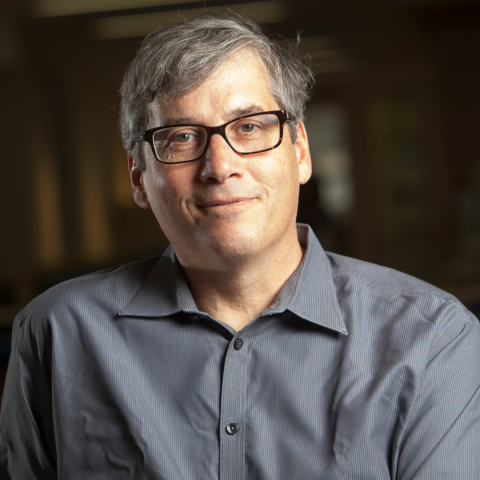
Professor David Freedman has helped shape how students, lawyers, and courts understand the modern realities of wills and estates law. For over two decades at Queen’s Law, he has been bringing real-world practice and academic insight together to help students navigate the evolving complexities of this area. In the school’s four-day online End-of-Life Law Certificate program in June, he will teach a session for professionals.
He was the founding director of the Queen’s Elder Law Clinic, which opened in 2010 as the first of its kind at a Canadian law school. Through the clinic, students continue to gain practical experience under the supervision of an experienced lawyer while addressing a gap in legal services for seniors.
A Certified Specialist in Estates and Trust Law by the Law Society of Ontario, Freedman maintains a litigation practice with Wagner Sidlofsky LLP in Toronto. He has often appeared before trial and appeal courts, as well as in arbitrations.
Freedman regularly speaks at educational events for lawyers, judges and other professionals, including those organized by the Ontario Bar Association and the Law Society of Ontario.
Among his many publications, Freedman is co-author of Oosterhoff on Wills (Thomson Reuters, 9th ed.), a leading authority on succession law, and has contributed to The Law of Trusts: A Contextual Approach (Emond Montgomery, 4th ed.) He is also the Editor-in-Chief of the Estates, Trusts & Pensions Journal, the leading Canadian law journal in the area.
In this Q&A, Freedman discusses how wills and estates law adapts to modern realities – from changing family structures to end-of-life planning.
How did you get interested in wills and estates?
I became interested in wills and estates through the law of trusts. There is an overlap between the two areas, with a lot of technical law that I find interesting.
What do you find fascinating about this area of law?
Academically, I find the development of the law to be the most interesting. This is a very old area of law that has changed over the years in ways reflective of how law and legal culture have changed, in addition to changing conceptions of family structure and personal rights. It continues to develop in ways that are creative and speak to larger public policy issues. Practically, this is an area of law that touches everyone.
What is your latest work in this area?
I’ve been busy of late chairing a working group dealing with revisions to the model statute created by the Uniform Law Conference of Canada. It’s been interesting to work with government lawyers, academics and lawyers in private practice from across the country in developing a model of law that can be adopted in the various provinces.
What are some of the major developments in this area and why are they important?
The law is changing in recent years, reflective of changes in society, especially with respect to the rights of surviving cohabiting and married spouses, as well as discrete issues like responding to elder abuse in the form of wills coerced by caregivers, sometimes through marriage. This is important, as the law should react to social needs in an effective and efficient manner.
How do legal professionals and other professionals collaborate in estate planning?
Estate planning must reflect a client’s needs. For wealthy individuals, this may include assets held across jurisdictions with a lot of technical tax planning. For others, the plan may revolve around the needs of disabled dependants. The nature of the client’s needs will dictate what sorts of expertise are required to create such a plan. Lawyers often work with investment advisers, tax professionals, corporate lawyers, accountants and others to offer effective solutions.
What are some common misconceptions people have about wills and estates?
That by making a will, it will hasten a person’s demise! Making a will (like a power of attorney) is actually a very kind act; it creates a structure to be followed to respond to a death or a loss of mental capacity without leaving a mess for someone else to clean up.
Why is it important for professionals in fields such as healthcare, government policy, non-profits, elder care, finance and wealth management, and private legal practice to have a solid understanding of these legal issues?
Two things come to mind: how to utilize assets efficiently during a person’s lifetime and how to maximize the value of assets after death. Beyond, professionals should understand the nature of the authority of attorneys, trustees, and estate trustees and especially fiduciary obligations – our role is to assist in managing complex issues within the constraints of the law.
Professor David Freedman moderated a panel on “Incapacity Planning and End-of-Life Decision-Making: A Primer” at Queen’s Law in January 2024. Alongside panellists Leanne Kaufman, Law’96, President and CEO of RBC Royal Trust, and Alexandra Manthorpe, Law’10, a wills and estates lawyer with Cunningham Swan, he discussed the growing need for incapacity planning as Canadians live longer. They focused on Ontario’s legal framework for powers of attorney and substitute decision-makers, explaining who can make decisions for those unable to manage their personal care or property. Listen to the panel discussion podcast.
This spring, Freedman and Manthorpe will co-teach a session on wills and estates, funeral and burial planning as part of Queen’s Law’s End-of-Life Law Certificate, a four-day online program for professionals running June 2–5. Learn more and register on the End-of-Life Law Certificate program web page.
By Lisa Graham